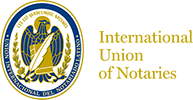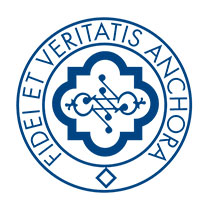The map of notaries in the world
The Italian (or “Latin”) model of notary (otherwise known as “civil law notary”) is present in 86 countries around the world and in 22 of the 28 European countries, covering over 60% of the world population.
In all these countries, notaries are highly trained lawyers selected by the State, non-partisan by law with respect to the parties and therefore able to offer impartial assistance of which they are guarantors and for which they are responsible. The fact that those operations that are economically more important for citizens are subject to a prior review of legality by a specialist who is independent of the parties very significantly reduces subsequent disputes.
The advantages of the internationally recognised Latin type of notariat have led in recent years – a result of globalisation – to a considerable spread of this model in the world: culturally very distant countries have become part of the family, such as China, Japan, Indonesia and Vietnam, and the model’s presence has been further reinforced in the European arena with the entry of Russia and almost all the countries of Eastern Europe. The Italian notariat, the oldest and among the most influential in the world, actively supports the growth of more recent notarial organisations.
Co-operation between the Italian and Chinese notariats is intense and is bearing fruit. In 2003, the Chinese Ministry of Justice chose Rome to announce, during a visit to the National Council of Notaries, the adoption by his country of the Latin notarial model and recently (September 2014) returned to explore the subjects of electronic transmission of documents to the land registry and the company registry as a way of overcoming problems known elsewhere as identity fraud, identity theft, and real estate fraud. To this end, in recent years training courses have been held in Rome by the Italian Ministry of Foreign Affairs, the International Union of Notariats and the National Council of Notaries.
The validity of the system of Latin notaries has gained ground too in totally different political and economic contexts. Alabama and Florida, alongside their Anglo-Saxon system, have put in place a new body of Latin notaries, such as has existed for some time in Louisiana; other US states are following suit. Italian notaries have been called to assist in the training of their new American colleagues.
How it works where there is no notary
The role of the notary public of the Anglo-Saxon type (in Great Britain, the US and other countries) is quite different: there he is only responsible for the authenticity of signatures. This obliges, for example, anyone who buys or sells a house to seek the advice of a lawyer (one each) and to bear the cost of title insurance, with total costs that are much higher than those that are incurred in Italy for the same level of guarantee.
The absence of the figure of the Latin-type notary also leads to unreliability of the data entered in the land and company registers of these countries, as is clearly admitted by those who manage them.
The economic value of the public function of the notary is also demonstrated by the request by the American Bar Association for the presence of three Italian notaries in the task force set up with representatives from the White House and the FBI to find effective solutions to problems relating to the management of digital identities and the prevention of electronic fraud. Such phenomena are also linked to the housing market, which led among other things to the falsification of thousands of documents prepared to facilitate the expropriation of the assets of borrowers (“foreclosure-gate” and “robo-signing”).
International organisations
- CNUE – Council of Notariats of the European Union
The Council of Notariats of the European Union (CNUE), established in 1993, is the official body representing the Notariat with regard to European institutions. The CNUE includes the 22 Notariats present in the 28 EU countries: Austria, Belgium, Bulgaria, Croatia, Estonia, France, Germany, Greece, Italy, Latvia, Lithuania, Luxembourg, Malta, the Netherlands, Poland, Portugal, the Czech Republic, Romania, Slovakia, Slovenia, Spain and Hungary. Turkey has been accepted as an observer.
- U.I.N.L. – The International Union of Notariats
The International Union of Notariats is an NGO founded in 1948 and set up to promote, coordinate and develop the function of notarial services throughout the world, since closer cooperation among Notariats ensures their dignity and independence, in order to better serve individuals and society.
There are 91 Member Notariats: Albania, Algeria, Andorra, Argentina, Armenia, Austria, Belarus, Belgium, Benin, Bolivia, Bosnia and Herzegovina, Brazil, Bulgaria, Burkina Faso, Cameroon, Central African Republic, Chad, Chile, China, Colombia, Congo, Costa Rica, Côte d’Ivoire, Croatia, Cuba, Czech Republic, Dominican Republic, Ecuador, El Salvador, Estonia, France, Gabon, Georgia, Germany, Greece, Guatemala, Guinea, Haiti, Honduras, Hungary, Indonesia, Italy, Japan, Kazakhstan, Kosovo, Latvia, Lebanon, Lithuania, London (UK), Luxembourg, Macedonia (Rep.), Madagascar, Mali, Malta, Mauritanie, Mauritius, Mexico, Monaco, Mongolia, Montegro, Morocco, Netherlands, Nicaragua, Niger, Panama, Paraguay, Peru, Poland, Porto Rico, Portugal, Quebec (Canada), Republic of Korea, Republic of Moldova, Republic of North Macedonia, Romania, Russian Federation, San Marino, Senegal, Serbia, Slovakia, Slovenia, Spain, Switzerland, Togo, Tunisia, Turkey, Ukraine, Uruguay, Uzbekistan, Vatican City (State of the), Venezuela, Viet Nam.






